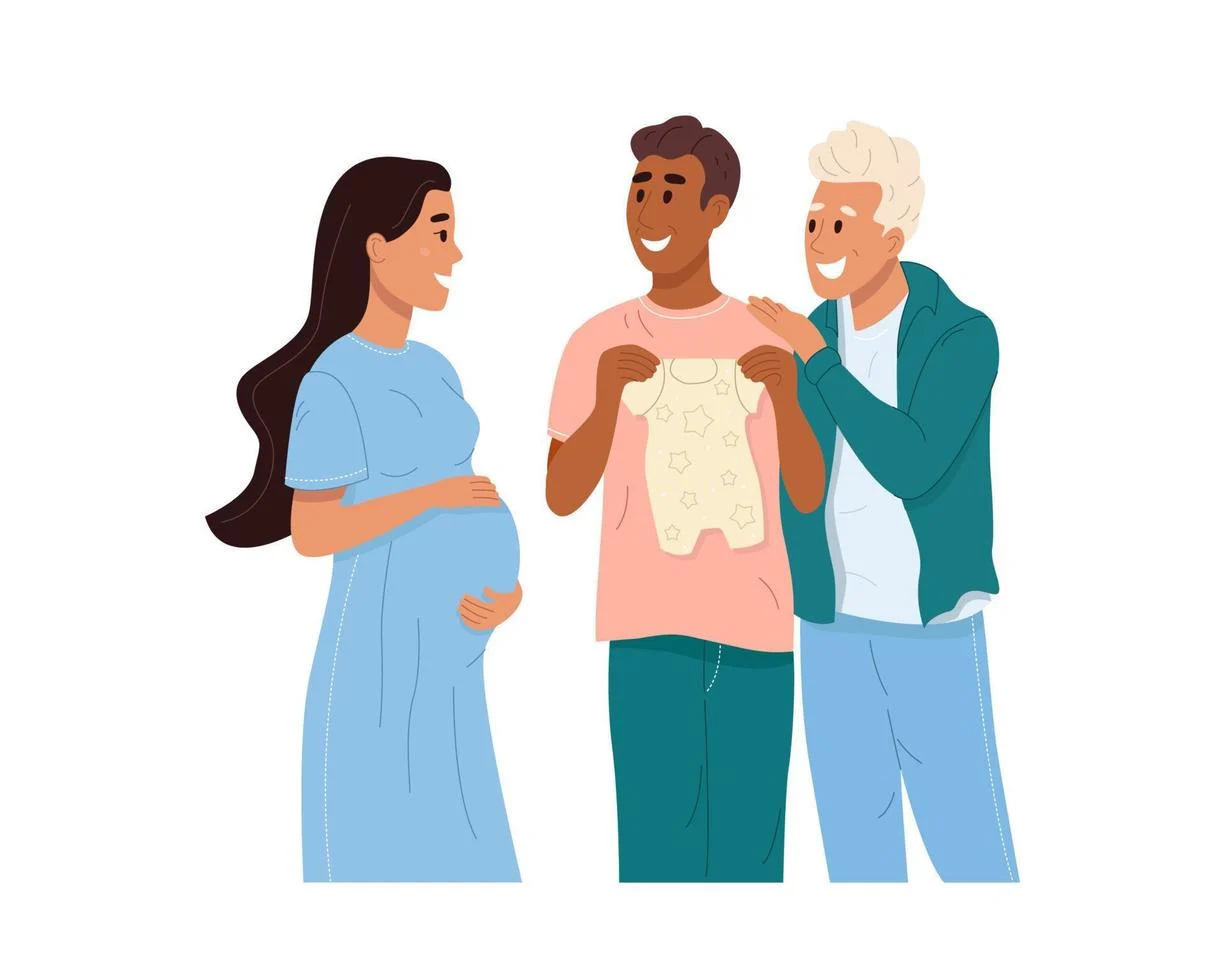I should have noticed something was off when I found myself wishing for a platter of sushi instead of cradling my newborn daughter. I should have realized it wasn’t right when I broke down in tears while trying to strap our three-day-old baby into her car seat, or when I handed her to my mother and locked myself in the bathroom to cry.
Looking back, I can see that I cried every day after my daughter’s birth, except for the day she arrived. The first night in the hospital was tough; I cried because I couldn’t sleep. The next day, I shed tears over the intense pain I felt after giving birth. Living in a four-story walk-up didn’t help, as every step reminded me of the stitches from my second-degree tear. But the crying never truly stopped, even when the reasons faded. It felt instinctual, like a reflex, and I found myself in tears multiple times a day.
I realized I was dealing with postpartum depression when my daughter was six weeks old. One afternoon, while she napped, I snuck into the bathroom for a moment of peace and caught my reflection in the mirror. My eyes were puffy, my skin looked rough, and I noticed chunks of hair falling out. My doctor had warned me about this—thanks to changing hormones—but I felt desperate to escape it. I poured every ounce of my identity into those limp strands of hair.
That weekend, I decided to make a change. I went to a salon, pointed to a photo of a pixie cut on the wall, and walked out with hair shorter than my husband’s. For a brief moment, I felt empowered, like I could reclaim a piece of myself beyond being just a mother. But that feeling soon gave way to deeper hopelessness. I felt increasingly disconnected from my daughter and my husband, and some days, I didn’t feel love for either of them at all.
Understanding Depression
Describing depression is tricky. It’s a mix of feeling and a lack of feeling. You’re aware that you’re alive—moving, eating, breathing—but inside, it can feel like a fog. It’s confusing and often feels like a part of you that’s hard to shake.
The darkest moments often hit around 3 a.m., a time I came to call “Mad Money hour.” My daughter would wake for a feeding, and since she was exclusively breastfed, it was all on me. Meanwhile, Jim Cramer would be yelling about stocks while my husband slept soundly. It was during these hours that I found myself questioning motherhood and my very existence.
I started having thoughts that scared me. At first, they were fleeting, like the idea of jumping in front of traffic, but they became overwhelming. I would lock the brakes on the stroller at red lights, imagining what it would be like if I just leaned back, just slipped away. The thoughts morphed into plans, though I never settled on one. I knew I wouldn’t go through with self-harm, but the mental struggle was exhausting. I felt like a danger to myself and my daughter.
I stopped eating properly, nibbling on scraps instead of meals. I lost the weight I gained during pregnancy quickly, and the tears kept flowing. I cried about everything—spilled water, dirty dishes, even my cat throwing up. I cried because I couldn’t stop crying.
Seeking Help
It was November 2013 when I finally admitted to myself and my husband that I couldn’t handle it anymore. I don’t remember what exactly broke me—maybe it was cracked nipples or a cold cup of coffee—but I needed help. I pleaded with my husband to get me admitted somewhere. I told him I cried every day and that I wanted to die. What I didn’t share was the terrifying thought of harming our daughter.
I was diagnosed with postpartum depression in January 2014. Depression convinces you that there’s no hope, isolating you in your pain. Now, Amelia is 20 months old, and while I wish I could say I’m fully recovered, I’m still navigating the ups and downs. Things have improved with therapy, but there are still tough days.
On the bright side, my hair has grown back. The color changes frequently—I’ve tried blond, red, purple, teal, and brunette—but it’s growing. I’ve come to realize that my hair symbolizes more than just a bad day; it represents resilience. As wild and messy as it can get, I haven’t cut it. I need that reminder to hold on, especially for all the mothers out there who might be reading this through tears: hang in there. It gets better—not perfect, but better.
If you’re interested in learning more about home insemination, check out this post on intracervical insemination. Also, for expert insights, visit Make A Mom or UCSF’s Center for more resources.
Summary
This personal account reflects the struggles of postpartum depression, highlighting the emotional turmoil experienced by new mothers. It emphasizes the importance of seeking help and the journey toward healing. The author shares her experiences, from overwhelming sadness to moments of hope, urging fellow mothers to persevere because it does get better.
